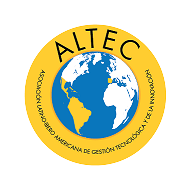| dc.date.accessioned | 2021-05-27T15:55:45Z | |
| dc.date.available | 2021-05-27T15:55:45Z | |
| dc.date.issued | 2013 | |
| dc.identifier.uri | https://hdl.handle.net/20.500.13048/739 | |
| dc.description.abstract | The innovation in the cultural sector has been poorly studied and there are fewer studies on festivals, when they are cultural events that often have a significant impact on the regions in which they occur. In this paper we have analyzed the early music festivals grouped in a European association to find out if they produce specific innovations and which groups of stakeholders are the most influential in the development of their innovations. The results show that in such festivals occur some innovations, which are different from those that take place in the other kind of festivals; also there have been identified some stakeholders involved on these innovations that had not been identified in previous studies in spite of being influential. This is due to the uniqueness of this kind of music, highly dependent on musicological research, oriented to a minority audience and related to cities with prominent historical and artistic heritage and musicological tradition. | |
| dc.description.abstract | El sector de la cultura ha sido escasamente estudiado desde el punto de vista de la
innovación y aún es menor el número de trabajos sobre festivales, cuando son eventos que
suelen tener un impacto relevante sobre los territorios en los que se desarrollan. En el
presente trabajo se ha analizado un caso singular, el de los festivales de música antigua
agrupados en una asociación europea, para averiguar si en ellos se producen innovaciones
específicas y qué colectivos de interesados son los que más influyen en el desarrollo de las
innovaciones antedichas. Los resultados muestran que este tipo de festivales presentan
innovaciones claramente diferenciadas respecto a otros tipos de festivales de música
analizados previamente. Asimismo, se han identificado colectivos de interesados
(stakeholders) que intervienen o influyen en su desarrollo, no identificados en estudios
anteriores, precisamente por la singularidad de este tipo de música, altamente dependiente
de la investigación musicológica, minoritaria y muy vinculada a ciudades con patrimonios
histórico-artísticos y tradición musical destacados. | |
| dc.language.iso | spa | |
| dc.rights | info:eu-repo/semantics/openAccess | |
| dc.rights | Atribución-NoComercial-SinDerivadas 2.5 Perú | |
| dc.rights.uri | http://creativecommons.org/licenses/by-nc-nd/2.5/pe/ | |
| dc.subject | Industria creativa | |
| dc.subject | Procesos de innovación | |
| dc.subject | festival de música | |
| dc.title | Los festivales de música antigua: ¿espacios para la innovación? | |
| dc.type | info:eu-repo/semantics/conferenceObject | |
| dc.relation.conferencedate | 27-31 de octubre, 2013 | |
| dc.relation.conferencename | XV Congreso Latino-Iberoamericano de Gestión Tecnológica | |
| dc.relation.conferenceplace | Porto, Portugal | |


